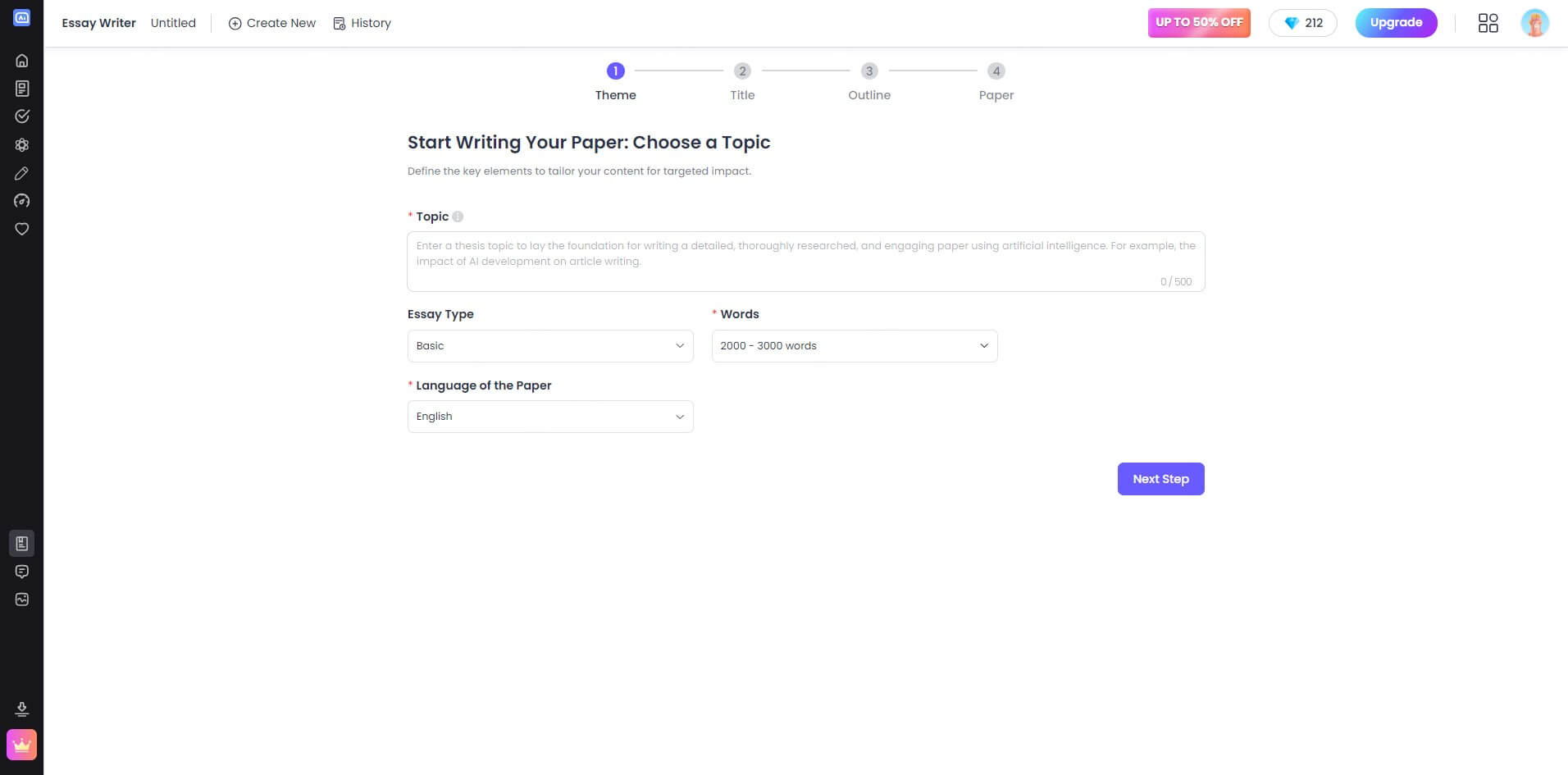How to Choose a Great Research Topic: Guide for college students
Learn how to choose specific and effective research topics with step-by-step guidance. Discover the art of narrowing down and refining general topics to find the perfect researching area.
The First Step in Writing a Successful Research Paper: Choosing an Effective Research Topic Choosing a research topic is the cornerstone of any successful research paper. By starting with the right topic, you set the stage for a well-focused and deeply engaging study. The task of selecting a topic may seem challenging, but with the right approach, it becomes a systematic process that can significantly enhance your chances of completing a successful research project.

Table of contents
What is a Research Topic?
A research topic is the specific subject that you want to explore in your research paper. It serves as the guiding star of your entire project. A good research topic isn't just broad but is a focused area within a general subject. Focusing on a specific area gives your research direction, enabling you to pinpoint problems, identify gaps, address common misconceptions, or ask crucial questions within that topic.
Narrowing by Expanding
The process of selecting an effective research topic can be encapsulated in the concept of "narrowing by expanding." At first, this might sound contradictory, so let's break it down. The idea is to start with a broad, general topic and gradually narrow it down by breaking it into smaller, more specific subtopics. This ensures that you can focus on an area that is both manageable and rich in information.
How to Create a Good Research Topic?
To elucidate this process, let’s work through a real-life example following a systematic approach.
Step 1: Identify Your General Topic
Start with your given, broad topic. For example, if you're an undergraduate business student working on a critical thinking course, your general topic might be "time management."
Step 2: Play Matchmaker
Now, think of this broad topic as if you're trying to pair it with potential specific areas—like matchmaking. This means brainstorming different subtopics or specific areas within "time management" that align with your field of study. Possible areas could include:
Time management and college students
Time management in entrepreneurship
Time management and job success
Keep your topics relevant to your course or degree. For example, connecting "time management" with "ADHD" might not be suitable for a business class.
Step 3: Develop Variations
Once you have your subtopics, develop different variations for each. Using our example, if you choose "time management and college students," your variations could include:
Time management and graduate students
Time management and undergraduate students
Time management for online college students
Time management in business majors
These are all plausible directions within the specific area you've chosen.
Step 4: Keep Your Initial Topics Mutual
For preliminary research, keep your topics as neutral as possible. Use terms like "impact" or "effect" to form working topics:
The impact of time management on undergraduate students
The effect of time management on online students
The impact of time management on business majors
Staying mutual helps in conducting a wide preliminary review without any biases.

Conducting Preliminary Research
This is where you start to narrow down your topics even further by doing some initial, or "preliminary," research. The goal is to explore what's already out there and ask two critical questions:
Is there enough information available on these topics?
How closely do these topics align with your assignment criteria?
For instance, when researching "the effect time management has on business majors," you might find not enough existing information to support your study. In such cases, it's practical to drop that topic early.
Focusing In
After conducting preliminary research, you might decide to focus on "time management and undergraduate students." You can continue to narrow this down by asking more refined questions:
How does time management affect undergraduate students?
What specific aspect of time management are you interested in? (e.g., scheduling, balancing responsibilities, etc.)
Which specific demographic are you targeting among undergraduate students? (e.g., age, ethnicity, year of study, etc.)
Example of Refining the Topic
Imagine you want to explore "the impact of time management on the success of undergraduate students.” Since "success" can be quite broad, you narrow it further:
Impact of time management on the likelihood of graduating
The effect of time management on GPA
How time management influences stress levels
You'll keep refining until you have a manageable, focused topic.
Finalizing Your Research Topic
After refining, you need to finalize your specific research topic. First draft might be: "the impact of time management on the likelihood of undergraduate students graduating." This topic can be refined further for greater precision and clarity, such as: "Impact of Proper Time Management Skills on the Graduation Rate of Undergraduate Students."
Next Steps: From Research Topic to Research Question
Once you have your final topic, the next steps involve converting this topic into a research question and subsequently developing a thesis statement. This process guides your research and provides a clear direction from your starting point (topic) to your endpoint (thesis statement).
In the subsequent stages, you'll learn how to frame an effective research question based on your topic, ensuring it is clear, focused, and researchable. Then, you'll craft a thesis statement, which acts as the roadmap for your entire research paper.
Generate papers fast in just 30 seconds with AI research paper maker
ChatArt's paper generator can quickly help you create reports and give you direct inspiration right when you need it.

Conclusion
Stay tuned for the upcoming tutorials where we'll delve into formulating your research question and building your thesis statement. Until then, feel free to use these steps to choose your effective research topic and start your journey towards a successful research paper.

AI Speech Writer

Pick Up Line Generator

Hook Sentence Generator | Hook Generator for Essay









 AI Writer
AI Writer
 AI Image
AI Image
 AI Chat
AI Chat
 Email Writer
Email Writer
 Novel Writer
Novel Writer


 GPT-4.1
GPT-4.1
 GPT-4o & o3-mini
GPT-4o & o3-mini
 Claude 3.7 sonnet
Claude 3.7 sonnet
 Gemini 2.0 Pro
Gemini 2.0 Pro
 DeepSeek R1&V3
DeepSeek R1&V3











